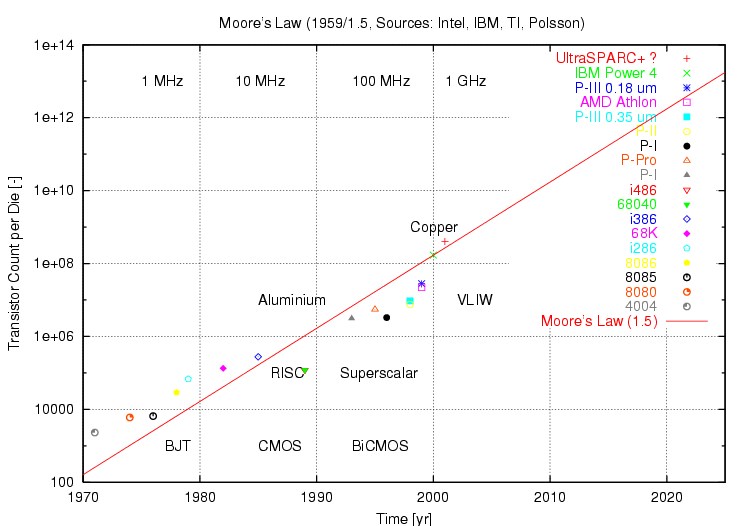January 28, 2006
STS-25
Given my penchant for pasting images into my posts, you'd think you'd be staring at one of those awful pictures from twenty years ago today right now, wouldn't you?. But plenty of people are posting those today, and I can still barely stand to look at them, twenty years later. Like the second plane hitting the South Tower, it's still too wrenching to watch.
 January Twenty-Eighth is one of those dates etched in my mind, like 12/7/41, 11/22/63, 11/9/89, and 9/11/01, not just this year, but every year. I was a Kennedy-era kid who used to get up at 4:00 in the morning to watch Mercury launches. NASA TV is one of my favorite cable channels. I don't need to see the pictures. Apollo 1, Columbia, it's a busy season, alas.
January Twenty-Eighth is one of those dates etched in my mind, like 12/7/41, 11/22/63, 11/9/89, and 9/11/01, not just this year, but every year. I was a Kennedy-era kid who used to get up at 4:00 in the morning to watch Mercury launches. NASA TV is one of my favorite cable channels. I don't need to see the pictures. Apollo 1, Columbia, it's a busy season, alas.
As I was waking up this morning, I was recalling that scene, right after "go at throttle up" and trying to place what it was that it was reminding me of. I imagined myself looking up the stem of a giant poppy plant, with the poppy bulb at its top where the big external fuel tank explosion billow was. Here's a picture of a poppy bulb from the top.
I still breath a little sigh of relief during every live launch I've watched since when those SRBs peel off. "Get the hell off you SOBs!", I'll think to myself, chuckling in relieved amusement at my own puerile pun.
I was home on my old couch that day, working (according to my notes) on my Masters Thesis, of all things. In fact, the scene seen from inside my picture tube was probably not all that much unlike the one shown here. I was sitting with the TV off when my sister called up and said "the space shuttle just blew up!"…
But my purpose at the moment is not to merely to add to the chorus of somber reminiscence…
…except to perhaps add that whatever differences I might have had with The Gipper and his Gang, Peggy Noonan's tasteful plundering of the first and last lines of High Flight remains the high water mark for post-Kennedy administration presidential eloquence to this very day.
…in fact, my original purpose was to use this post as a introduction to some ruminations on the limits of reuse, but I think I'll try to put those together separately, and just finish this one here instead…
From a memepool epidemiological standpoint, I wonder how many posts today will contain the phrases "etched in my memory", "major malfunction" or "surly bonds of earth"… …I suppose when you are president, any use is fair use, attributed or not…
January 27, 2006
Thomas Jay Peckish II on Refactoring
We'll know that refactoring has really arrived when Microsoft starts marketing Word as a refactoring tool for your prose...
--Thomas Jay Peckish II
You know, over the last couple of days since I've posted this hoary quip, it's occurred to me that there actually may be something to the idea of bringing refactoring tool ideas into the realm of prose cultivation. I wonder if there are tools like this out there already?
Indeed, witness this observation on this topic...
January 25, 2006
Ugly Stereotypes

Here's yet another scientific finding that will reinforce some ugly stereotypes about software professionals. The authors exhibited commendable restraint in avoiding a rather obvious, but puerile, opening for humor having to do with baseball equipment…
January 24, 2006
Bush Lite
It looks like our neighbors up in America's unfinished attic are changing their lead dog and veering their sled-of-state a touch to the right. It seems as if some among the current team had been sneaking a snack or two from the wrong bowls.
Catfish congratulates PM-elect Stephen Harper on his avalanche victory... …he seems to be the beneficiary of some bizarre hemispheric karmic balancing act involving Chile and Bolivia…
All and all I'm reminded of my favorite Canadian joke, a tidbit I picked up from the old National Lampoon sometime during the early seventies:
Q: When Wake Up Little Susie was number one in the United States, what song was number one in Canada?
A: Who cares, but three weeks later it was Wake Up Little Susie.
Lest anyone think I've singled out The Dominion, the "Lebensraum-lite" undercurrent underlying the versatile geopolitical jape with which this post opened can also be retargeted to construe Australia as "Indonesia's unfinished basement", or Siberia as "China's unfinished attic"…
--TJP2
Robert Biddle subsequently added, re: Wake Up Little Susie:
In fact, this was also the number one song in Canada the week before it was in the US. http://en.wikipedia.org/wiki/Number-one_hits_of_1957_%28USA%29 http://www.1050chum.com/index_chumcharts.aspx?chart=21 As if I care...
January 22, 2006
Impossible Design

Mariann Unterluggauer reports here on the latest ruminations from peripatetic software visionary and Catfish favorite Richard P. Gabriel at the OOP 2006 Conference in Munich. Dick, whom it would appear is riding a sustained wave of popularity in Europe, summoned his inner Cervantes to deliver a talk provocatively entitled Impossible Design...
The Mind of the Theoretician
I have struggled for, let's say, way longer than is good for a person, to comprehend the mind of the theoretical computer scientist. I've met with mixed success at best over the years, but this post offers more insight than most into the monastic deliberations of this secular priesthood...
A postscript: I've been causally browsing "Ernie" occasionally for the last couple of three or four months, but I'd never hunted around enough to discover that Ernie's Gepetto is UIUC DCS's own Jeff Erickson. I'm reminded of one of those horror stories that ends with "run for your life, that phone call was made from inside the building!". I might add that I completely concur with Steve Freeman's observation that Erickson's work in this area is likely applicable, with appropriate revision, to conference committees in general.
January 21, 2006
The Physicists Took the Easy Problem

The reader may well be surprised that scientists dare to study processes that took place so early in the history of the universe. On the basis of present observations, in a universe that is some 10 to 20 billion years old, cosmologists are claiming that they can extrapolate backward in time to learn the conditions one second after the beginning! If cosmologists are so smart, you might ask, why can they predict the weather? The answer, I would argue, is not that cosmologists are so smart, but that the earlier universe is much simpler than the weather!
--Alan H. Guth, on Condensation of the Primordial Soup, in The Inflationary Universe, p. 89
I used to be fond of amusing my friends and colleagues who were trained as physicists by asserting that they were able to give the appearance of being more serious scientists than computer scientists because they'd grabbed the easy problem first. Not only that, they've got a worked example in front of them to examine. And they had a head start. I was amused yesterday to find this passage from Guth that lent evidence to this cherished, long-held suspicion…
Stefan Lauterer weighs in with some thoughts on the connection between this and Austrian politics here.
January 20, 2006
God Save the King


Given that the terms of the current United States Constitution remain in force and are duly honored, and barring calamity or disgrace, the reign of His Imperial Majesty George III will come to an end, with the Coronation of his successor, whomever he or she may be, exactly three years from today, on 20 January 2009, at 12:00 EST, 11:00 CST.
I'll leave it to the reader to decide whether this is good news or bad news.
That's right, this is our third ruler named George. His father was our second. The father of our country was the first. Our last ruler under British authority was also called George III. His poll numbers weren't the greatest either. What goes around...
It may seem odd that I notice this date every year, but it has a way of being a personally auspicious occasion. Witness, for instance, this post. We reckon time by the reigns of our regents, and since the days of Franklin II, this has been our official ceremonial day of transition. Of course, I'd pretty much beaten this topic to death last year too...
Guten Tag

As part of a effort to try to figure out what this "tagging" craze is about, I've created a Technorati Profile. Let's see if I regret it.
It seems likely that I'll need to upgrade Movable Type to really put this stuff through its paces, and thereby begin to form an informed opinion, but that will have to wait. As ace, recovering System Administrator Thomas Jay Peckish II always says: "Don't mess with it if you don't have time to break it..." or something a lot like that.
Now, an MT upgrade could well allow Catfish to allow comments too. Hmmm…
In the meantime, at least my bilingual pun drew a chuckle from a prominent member of the Pan-Teutonic Tech-Journalistic Community...
So, anyhow, here goes: tag Technorati Tags Tagging Technorati Tags Thomas Jay Peckish II
So, here's what Technorati coughs up for TJP2. I'm still working on getting the hang of how to get these things to work:
Posts that contain Thomas Jay Peckish II per day for the last 30 days.
Get your own chart!
January 15, 2006
Tom Lehrer on Originality
It has long been my largely unrealized intention that an examination of the changing nature of originality in the twenty-first century, in an age of sampling and search engines, on a planet of seven billion souls, be an underlying, recurring, unifying theme of Catfish in the Memepool. My recent AJAX post is a case in point.

So, it is in this spirit that I'm going to indulge myself in a bit of personal nostalgia. Our peripatetic (but by no means itinerant) IBEAM Project Principal Investigator, Paul Saylor, made a scheduled stop at the Siebel Center as part of his winter tour last week, and was able, after an impromptu meeting, to offer me a ride home.
Paul is afflicted, thankfully, to a lesser degree than yours truly, with a weakness for the occasional dram (or is it a snifter?) of purple prose, and is, at times, well, a fellow big-word-using guy. It should suffice to say we are co-enablers when we get together.
It so happens that Paul had a CD by satirist and mathematician Tom Lehrer in the player in his rented van at the time. It engendered a veritably Proustian onslaught of rapturous recollections.

Graeme Cree has described Lehrer rather well: "If you've never heard him, he's very similar to Mark Russell, except that he's funny."
As it happens, my dad was a big fan of Lehrer's records when I was growing up. I think he got them through a record club. We used to sit around the living room and listen them on our Motorola console stereo with him back during the reigns of John V and Lyndon I. I was just in elementary school in those days, and most (but not quite all) of the sociopolitical allusions were doubtless lost on me at the time. Nonetheless, my siblings and I somehow found them infectiously hysterical anyway, and I still remember them vividly (well, better than I have any right to be able to expect to be able to, anyway).

Still, I'd completely forgotten that Lehrer had written one tune in which he actually incorporated the names of all 102 of the known elements in the periodic table at the time, but there it was, and the conversation somehow turned to Lobachevsky. Lobachevsky, as Paul knew better than I, was the "father" of the hyperbolic strain of Non-Eulcidan geometry. The conversation quickly turned to intellectual paternity in general, even as the CD player turned to Lehrer's commentary on it.
It seems certain that I hand not heard this tune in forty years, long before I became a ivory tower hired-hand. But, suffice to say it sounded more relevant today than ever. Rather than comment any further on it myself, I urge the reader, should he or she be so inclined, to pursue the following primary sources: The lyrics are here. An MP3 can be found here.
In a similar vein, Lehrer's scathingly brilliant Werner Von Braun can be taken as trenchant, if not still timely, commentary on the compromises that are sometimes necessary to fund one's research.
Once the rockets go up...
Original thought is like original sin: both happened before you were born to people you could not have possibly met.
—Fran Lebowitz
I don't have ideas. Ideas have me.
—Thomas Jay Peckish II
And then I write By morning, night, And afternoon, And pretty soon My name in Dnepropetrovsk is cursed, When he finds out I published first! --Tom Lehrer, Lobachevsky
A footnote: Among the things I've always hoped to feature in Catfish in the Memepool were amusing tales of the sheer futility of the pursuit of original thought, especially in light of the fact that search engines have rendered it trivial to disabuse one's self of such notions. Its great sport. This is not to say that such occurrences are not original in the sense that they were independently conceived, just that such conceptions are more often than not unique. It's as if the memepool itself is ripe with certain notions, and we are merely channeling it. Channel Catfish…
Today's example: Here's a three-year old occurrence of the term meme-slinger I'd secretly, vainly hoped I might have minted in that AJAX post last week. Hackneyed though it may be, it still fit its subject to a tee…
--BF, just another Memepool Medium…
January 14, 2006
La Rochefoucauld on Humility
Humility is the worst form of conceit.
--François Duc de La Rochefoucauld
January 11, 2006
Before Coffee
Evidently, you may often be in worse shape during the first few minutes after waking up than you might have been when you retired the previous evening.
An amusing item from CNN this morning: "For a short period, at least, the effects of sleep inertia may be as bad as or worse than being legally drunk," said researcher Kenneth Wright of the University of Colorado at Boulder.
Evidently, parts of the cortex do not rouse as quickly as other parts of the brain, hence a potentially (quite literally) groggy degree of impairment. This explains, in part, why I've managed over the years to make every conceivable mistake one can think of getting the coffee maker started... ...from forgetting the coffee, the water, the filter, the grinder, right through to the "on" switch ...before those higher cortical functions had woken up and kicked in...
What's next, holding the sandman accountable to dram shop laws?
January 09, 2006
What's New Here is that Nothing is New Here
What's new here is that nothing is new here.
I used this phrase nine years ago to open an obscure spasm of pomposity that opened the Pattern Languages of Program Design 3 book to describe the patterns movement itself. But, in the spirit of that piece, I'm going to shamelessly recycle it here, because it fits Ajax, that trendy, breakout postmodern school of web application design, to a tee.
The fascinating thing about Ajax is that it is an amalgam of existing technologies that all date back to the twentieth century. It's what the Web 2.0 crowd might call a mash-up. Only the name is new.

"Ajax" is short for "Asynchronous JavaScript + XML". This moniker (not the technology itself) is the brainchild of a meme-slinger who calls himself Jesse James Garrett, a handle more redolent of saddle soap than household cleaner. Garrett rides for a high-end Bay Area Buzz Boutique calling itself Adaptive Path. Garrett makes no intellectual paternity claims for the ideas proper, only for the name and the description. His web essay, Ajax: A New Approach to Web Applications cites several know uses for Ajax, and lists some defining characteristic of this style of architecture. In short, his essay is really quite pattern-like, though I don't think he claims as much. He'd certainly be entitled to do so. In any event, Garrett's essay, by conferring a name on this otherwise ineffable architectural notion, has put both Ajax and "Ajax" (to say nothing of Garrett himself) on the map.
Sun, for its part, is cautious about embracing the Ajax handle, but is not coy about this school of design itself.

Indeed, it's not clear that anyone claims to have actually invented Ajax. Instead, ad hoc designs using these technologies, such as Google Maps, Flickr, and the like, have appeared and incrementally grown more elaborate, and more refined right under everyone's noses for the last couple of years. Such is the face of innovation in the 21st century.
Now, Michael Mahemoff has exhibited no compunction in calling a pattern a pattern. Ralph Johnson pointed out this website a few weeks ago for a forthcoming book on Ajax Patterns. It is tastefully rendered, and quite engaging. I commend it to the reader's attention.
if nothing else, Mahemoff's site has encouraged me to take a harder look at MediaWiki as a pattern cultivation tool (though I've yet to do so.)

A few thoughts on Ajax:
It should go without saying that like so much of "architecture" in the web services realm, Ajax is a Worse-is-Better poster child.
Ajax applications typically shift control of an application back from the serve to the client side using a client side "engine" written in Java script. This engine communicates asynchronously with the server using XML. The server side could be written using nearly anything, but typically is written in a scripting language like PHP, Python, Perl, or Ruby.
Ajax, it would appear, has as it basis the groundbreaking architectural premise that a local rendering engine that buffer's communication with remote servers can provide a more satisfying, more responsive interactive experience to the user than can websites without one. (There I go with that tone that may strike readers as a touch sarcastic. I assure you that I don't have a sarcastic bone in my body.)
Under the hood, Ajax is an unspoken triumph for object-technology. JavaScript, PHP, Python, even Perl: all OO.
Why XML? For one thing, as always, XML can effortlessly traverse that semi-permeable membrane, that blood-brain barrier, Port 80, and hence walk through firewalls that would impede other vectors for virtual matter.
Why Javascript? Why did applets fail, and JavaScript win? Why now? It would seem that Ajax is (also) a poster-child for Moore's Law, and rolling obsolescence. Sometime around the turn of the century, 1GHz machines were all the rage, and now, the trailing edge of this Moore's Law curve has reached this point. The Ajax phenomenon is driven by the trailing edge of Moore's Law. That is to say, one can pretty much assume everyone has at least a 1GHz machine, and Windows XP or equivalent OS. Furthermore, the browser wars have essentially assured us that the vast majority of users have Javascript on the client side.
Code that would have performed unacceptably under scripting languages like JavaScript, or PHP, or Python for that matter three years ago, will run just fine now. Finally, we are spending some of our Moore's Law dividend fruitfully on something other than GUI eyewash.
In 2006, we can assume that script code that would have taken a DLL ten years ago, or a JIT'er five years ago, will run fine as-is. We can assume that the typical user buys in at broadband, and that bloated XML packets will not clog his or her plumbing. We can assume that a browser that runs JavaScript is at least in the user's back pocket. We can assume graphics horsepower that would have dropped jaws during the Clinton administration. We can assume that a 60Mb IE RAM footprint will draw only yawns. We can presume that machines that run at mere Megahertz clock rates are headed back into the closet.
Of course, the same reasoning applies more or less to just about any "LAMP-based" design.
James Governor concurs that Garrett's is a pattern naming coup here. [Michael's Ajax Patterns Tag]

